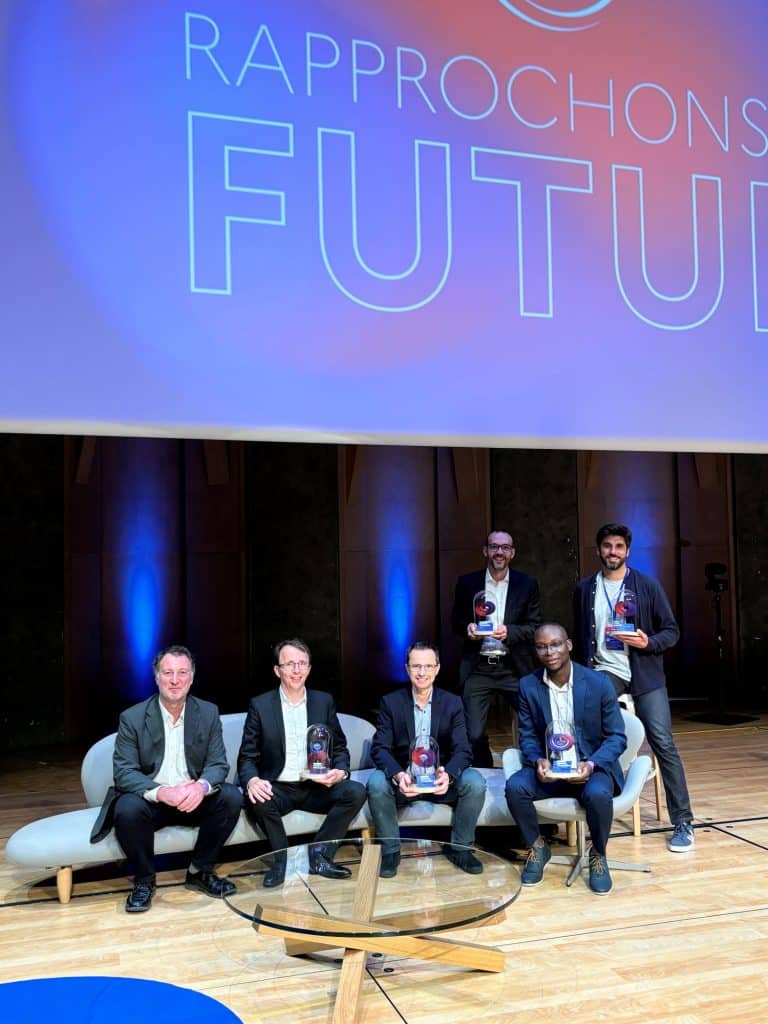Alcasun, the biosourced revolution: Exclusive interview with the winner
Alcasun is a biotech start-up project targeting cosmetics, green chemistry and bioenergy markets. The founders of this future startup have succeeded in isolating an algal enzyme capable, in the presence of blue light, of converting fatty acids into hydrocarbons (or alkanes) for cosmetic use. Alcasun’s ambition is to provide to the cosmetics industry bio-sourced and environmentally-friendly compounds. Alcasun is thus part of the development of an alternative production of alkanes from substrates formed from the fixation of atmospheric CO2.
The I-PhD Grand Prix rewards young scientists who wish to transform their discoveries into innovative and high-impact projects through the creation of a start-up company. This national competition, organized as part of the government’s France 2030 investment program, encourages them to turn their research into business. The Alcasun project has been rewarded both for the originality of its innovation and for its potential to respond to environmental and industrial challenges.

You’ve just won the i-PhD Grand Prix for your Alcasun startup project. Can you tell us what makes your technology so unique?
We offer a biotechnological process based on an enzyme discovered at BIAM, fatty acid photodecarboxylase. This enzyme enables us to produce alkanes, which are essential molecules in cosmetics as emollients or solvents. Unlike conventional processes, which are energy-intensive and may depend on fossil resources, our technology uses vegetable oils, offering a biosourced alternative. It’s this innovation that sets us apart, both in terms of its low environmental impact and the high quality of the molecules produced.
How your start-up project are developing today?
We’re in the technological maturation and market validation phase. Thanks to the CEA’s Magellan program, we are currently working on a proof-of-concept and are aiming for a TRL5* technological maturity level. This will enable us to demonstrate the industrial feasibility of our process before fully entering the market.
What are your scientific and industrial prospects?
Scientifically, enzymes like the one we use offer the possibility to produce complex molecules that traditional chemistry cannot synthesize. In the future, we want to explore others applications for these enzymes to develop high value-added molecules, particularly for the pharmaceutical industry. Optimizing these biocatalysts could transform several sectors by replacing polluting chemical processes with greener, more efficient solutions.
Your technology has applications in cosmetics. Are there other sectors potentially interested?
Absolutely. Depending on hydrocarbon chains length produced, our molecules can also be used in the chemical industry, for example as solvents for paints, or even in the fuel sector. In particular, we are considering applications such as bio-kerosene, a renewable alternative to fossil fuels.
What role did fondamental research play in your path to this award?
Fondamental research played a decisive role. The discovery of the enzyme we are using came directly from fundamental research at the CEA. Without this basis, it would have been impossible to understand and optimize the activity of this enzyme to turn it into an industrial tool. This prize is therefore a recognition of the crucial importance of fundamental research in biotechnological innovation.
Finally, how do you see Alcasun’s future?
The future looks promising. We’re continuing to perfect our technology to achieve a proof of concept sufficiently representative of industrial scale. Ultimately, we hope that our process will become the benchmark for the production of bio-based alkanes, not only in cosmetics but also in other industrial sectors. We want to make an active contribution to the ecological transition by offering sustainable, innovative solutions.
TRL5* : Technology Readiness Level is a scale used to assess the maturity of a technology under development, ranging from the initial stage of fundamental research (TRL 1) to a fully operational technology (TRL 9). TRL 5 is in the intermediate stage of development and marks a significant step forward, with more extensive testing and encouraging results, although the technology still has some way to go before being fully deployed.
Find out more about the Photoalkane fondamental research project